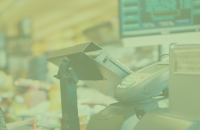What is ERP (Enterprise Resource Planning)?
ERP stands for “Enterprise Resource Planning”. The core principle of ERP is to consolidate the pieces of software you use throughout your business into one single, unified suite that takes care of everything your business needs from end to end. The practice of ERP originated in manufacturing but has rapidly become essential to the management of a retail business.
ERP includes many pieces of software that are often considered to be separate. By combining them all, the data flows quickly, easily and accurately from one end of the business to the other, and gives both store employees and head office decision makers access to the information and functionality they need to do their jobs with the greatest efficiency and positive impact.
ERP is designed to cover many areas of a business, including:
- Product planning, cost
- Manufacturing or service delivery
- Marketing and sales
- Inventory management
- Shipping and payment
The advantage of ERP is that with centralized data and functionality, your retail store’s software is whole instead of fragmented, able to move information and performs tasks from one section to the other seamlessly. Compared to the Frankenstein solution of accumulating several bolt-on pieces of software from different vendors, ERP is more robust, dependable, and trustworthy.
What kinds of software solutions are part of a retail ERP package?
Retail store owners looking to strengthen their capabilities or address the needs of their growing business may be looking to invest in or replace a specific piece of software. It’s tempting to upgrade or replace individual chunks of purpose-built software rather than look for a solution that addresses everything. Once a retail chain has around ten locations, however, they often decide ERP is less costly in the long run and provides greater benefits becomes of its comprehensive and efficient approach to retail software. ERP for small business packages usually contain:
- Head Office Operation Software
- Accounting / General Ledger Software
- Human Resources Software
- Point of Sale (POS) and Store Management Software
- Warehouse and Supply Chain Management Software
- Customer Relationship Management (CRM) Software
- Business Intelligence (BI) Software
What kinds of retailers tend to buy ERP software?
Often when a small specialty retailer is starting out, they only need the basics. ERP isn’t necessarily a good fit for a retail brand with only one or two locations, unless those locations are large, have several registers, and are doing a lot of business.
A good rule of thumb is that once a retail chain has between five and ten locations, they almost always start looking for a more comprehensive software solution that will meet all of their needs. ERP is a good investment for growing retailers who want to step up their game from small to mid-sized, because a well-chosen ERP platform can last ten or more years and scale with the company as they need it to do more things.
One a retail chain reaches a critical point of growth, waiting too long to get ERP will actually begin to have negative consequences. Managing operations across several locations become increasingly difficult if you’re trying to do it with a cobbled-together system that doesn’t natively communicate from piece to piece. That’s why almost all retailers with more than ten locations have some form of ERP software.
RECENT POSTS
 Why Inventory Precision Will Help You Drive Sales (and How to Achieve It)Learn how ERP can consolidate the pieces of software [...]
Why Inventory Precision Will Help You Drive Sales (and How to Achieve It)Learn how ERP can consolidate the pieces of software [...] Revolutionize Retail Experiences Efficiently with Hybrid CheckoutsLearn how ERP can consolidate the pieces of software [...]
Revolutionize Retail Experiences Efficiently with Hybrid CheckoutsLearn how ERP can consolidate the pieces of software [...] 4 Tactics Your Midsized Retail Chain Can Use to Survive COVID-19Learn how ERP can consolidate the pieces of software [...]
4 Tactics Your Midsized Retail Chain Can Use to Survive COVID-19Learn how ERP can consolidate the pieces of software [...]